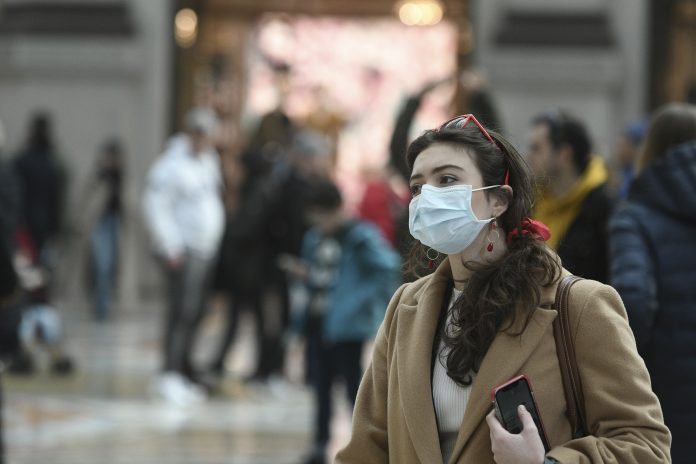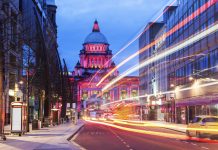Health Secretary Matt Hancock today (14 July) confirmed that wearing face masks will be mandatory in all shops after 24 July
On 24 July, wearing a mask in a shop will be a mandatory requirement. People who do not wear a mask will be fined £100, with shopworkers expected to highlight this policy in store and police to enforce the consequences. Children under the age of 11 and those with specific disabilities will be exempt from the new rule.
This update comes after Michael Gove said on Sunday (12 July) that masks should not be mandatory, because there is government trust in “people’s good sense.”
The UK Government has framed general public use of masks are a neutral tool against COVID-19, with England’s Deputy Chief Medical Officer Jonathan Van-Tam commenting over 100 days ago: “There is no evidence that general wearing of the face masks by the public who are well affects the spread of the disease.”
The official advice
Today (14 July) health secretary Matt Hancock formally discussed the rule change in the House of Commons. His speech was delayed by an intensive discussion of Huawei and 5G network building.
He described face coverings as a psychological tool to boost the economy:
“Our strategy is to protect the NHS, get the virus down and keep the virus down.”
“Sadly, the death rate for sales and retail assistants is 75% higher for men and 60% higher amongst women than the general population. As we restore shopping, so we must keep our shopkeepers safe. There’s also evidence that face coverings increase confidence in people to shop.”
Hancock then addressed the proposed enforcement of the mask rule:
“A shop can refuse them entry and can call the police if people refuse to comply. The police have formal enforcement powers and can issue a fine. This is in line with how shops would normally manage their customers. An enforcement is of course, a last resort, and we fully expect the public to comply with these rules, as they’ve done the pandemic.”
The British Medical Association (BMA) said the Government “refused to put in place this logical policy to prevent the spread of the virus, which has been the norm in around 120 countries globally including most of Europe.”
Dr Chaand Nagpaul, BMA council chair, further commented:
“However, why is it waiting another 11 days to implement this policy, when the risk from Covid-19 remains present right now? This needs to happen immediately given that each day that goes by adds to the risk of spread and endangers lives. The BMA also believes that the wearing of face coverings should be extended to all settings where people cannot maintain physical distancing.
“The latest ONS figures suggest that there are 1,700 new cases of coronavirus in England daily, which shows a lot more needs to be done before we can say this infection is anywhere near being under long-term control.
Labour’s shadow health secretary Jonathan Ashworth commented:
“Conflicting advice and conflicting statements from the government only hinder our fight against the virus”.
Is there public support for wearing face masks in shops?
According a snap YouGov poll on 13 July, 60% of people said they wanted the government to clearly tell people to wear masks, whilst 34% believe that people should be able to decide for themselves.
In support of those figures, of 5,032 doctors asked the same question by the BMA – 63% strongly agreed with the use of face masks, whilst 24% said they somewhat agreed. There is clearly strong medical support for these new measures.
In official guidelines, the WHO further emphasises the need for fabric, non-surgical masks to be worn by the general public on “public transport, in shops”, where the distancing policy is difficult to enact.
The WHO advice further suggest that the “use of a mask could be helpful to provide a barrier to limit the spread of potentially infectious droplets from someone who is infected.”
This advice is described as especially important for asymptomatic carriers who may not know they are infected with COVID-19.
According to John Apter of the Police Federation, shopworkers should make wearing a mask a “condition of entry”. But just how many at-risk workers will be risking confrontations with the public, an alarming minority of whom are mirroring Floridian #nomask ideas? Will it be possible for shops to engage in this level of policing?
The answers will become apparent over the next couple of weeks, as shops implement the new guidelines.











